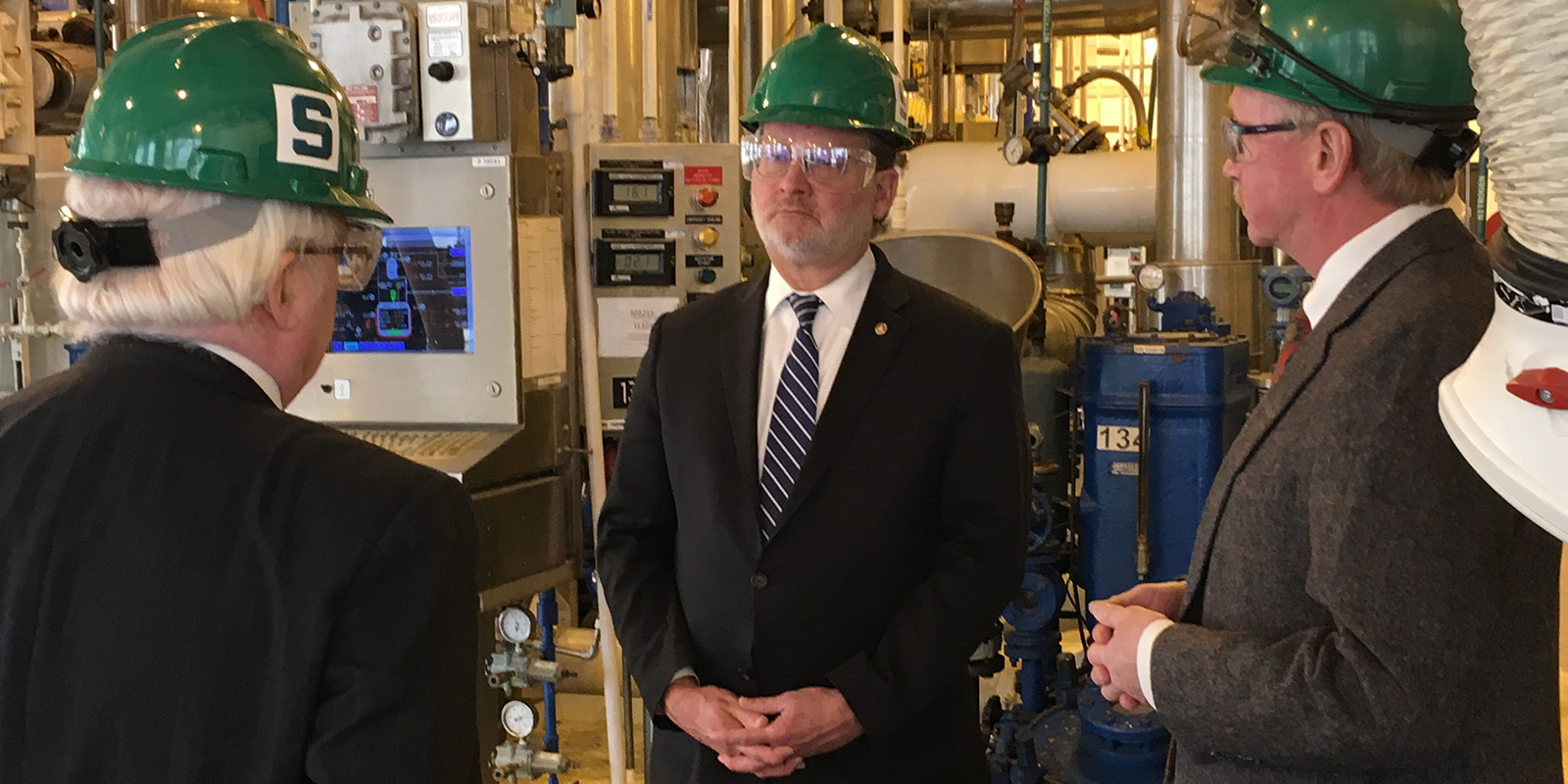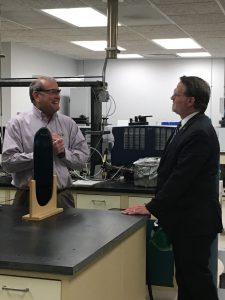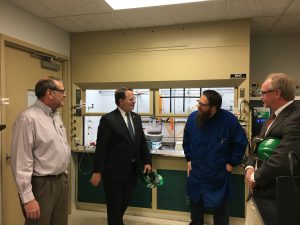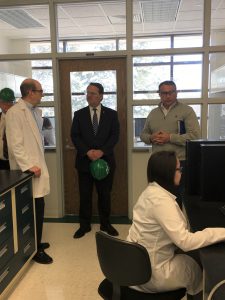Senator Gary Peters Visits MSU Bioeconomy Institute

On February 18, 2019, Senator Peters and members of his team visited the MSU Bioeconomy Institute in Holland, Michigan, as part of a tour of the local area.
The visit began with a brief overview of the history of the facility. The site has long been a part of local industry, having started as a tannery in the late 1800s. After numerous iterations, the last owner, Pfizer, donated the facility to Michigan State University about 10 years ago. Since that time, MSU has leveraged the plant and remaining equipment to conduct research and development, and to provide organic chemical scale-up services for companies and non-profits across the country.

Senator Peters speaking to Dr. Tom Guarr in his research lab

Senator Peters speaks with staff at Trident Labs
The first stop of the tour was at the lab of MSU researcher, Dr. Tom Guarr. Guarr explained his latest research related to the use of organic materials for various types of electrical energy storage. Guarr also provided an overview of his lab’s internship program, which offers important opportunities for training the next generation of scientists. Learn more about Dr. Guarr’s work on his lab website.
Next, the group visited Trident Laboratories, a tenant in the facility. MSUBI has long offered start-ups and other businesses leased laboratory and office space.
Trident CEO, Dan Kelsey, stated, “MSU really helped us get started and we are extremely pleased with our scientific space here at the Bioeconomy Institute. It has allowed us to grow and bring more jobs to the area.”

Senator Peters speaks with staff at Trident Labs
Trident provides a number of lab testing services for small companies and medical offices, and more recently, PFAS testing for affected sites around the state.
Led by environmental engineer, Tom Bauer, the group embarked on a tour of the plant as the last segment of their visit. Bauer described the multi-purpose organic chemistry scale-up facility and the 30,000 liter capacity of corrosion resistant stirred, heated, and cooled reactors.
The scale-up facility (pilot plant) is the largest such facility of any university in the world and the size of many small manufacturers. The plant has the capacity to scale-up laboratory processes by a factor of 1,000. The computer control systems allow for precise temperature and pressure control.
MSU BI helps organizations quickly and cost-effectively accelerate new specialty and biobased chemicals to commercialization and has produced more than 1,200 batches for some 30 separate companies.
These activities support Michigan State University’s general mission of research, teaching, and service-outreach, and specifically advance MSU’s efforts to promote the economic development of Michigan and the nation.

